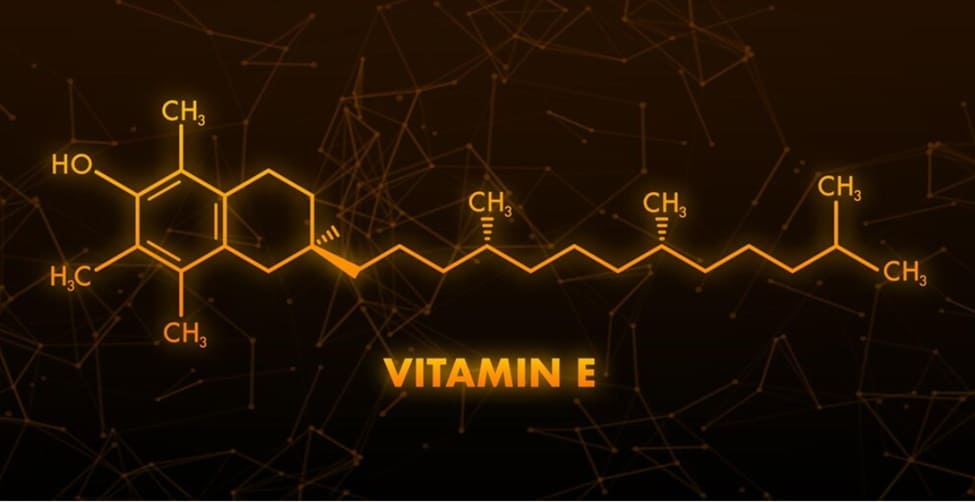Tocotrienols: A Powerful Antioxidant for Optimal Health
Tocotrienols are a group of compounds that belong to the vitamin E family. While most people are familiar with the more common form of vitamin E known as tocopherols, tocotrienols have gained increasing attention in recent years for their powerful antioxidant properties and potential health benefits. In this article, we will take a closer look at what tocotrienols are, where they come from, and how they can support optimal health and well-being.
What are Tocotrienols?
Tocotrienols are a group of four compounds that make up part of the vitamin E family. They are structurally similar to tocopherols, but with a few key differences. One of the most notable differences is that tocotrienols have a shorter side chain than tocopherols, which allows them to penetrate cell membranes more and protect against oxidative stress.
Tocotrienols also differ from tocopherols in terms of their sources. While tocopherols are commonly found in vegetable oils, nuts, and seeds, tocotrienols are rare and can only be found in a few select sources, including:
Palm Oil: Palm oil is one of the richest sources of tocotrienols, with red palm oil containing the highest concentration of tocotrienols.
Rice Bran: Rice bran is another good source of tocotrienols, with the outer layer of the rice grain containing the highest concentration of these compounds.
Annatto: Annatto is a plant that is commonly used as a natural food coloring, but it is also a good source of tocotrienols.
Barley: Barley is another source of tocotrienols, although the concentration of these compounds is much lower than in palm oil or rice bran.
Health Benefits of Tocotrienols
Tocotrienols have been studied extensively for their potential health benefits. Here are just a few of the ways in which these compounds can support optimal health and well-being:
Antioxidant Properties: Tocotrienols are powerful antioxidants, which means they can help protect against the harmful effects of oxidative stress. Oxidative stress is a natural process that occurs when the body produces more free radicals than it can neutralize, and it has been linked to a wide range of health problems, including cancer, heart disease, and Alzheimer’s disease.
Cardiovascular Health: Tocotrienols have been shown to support cardiovascular health in a number of ways. They can help lower cholesterol levels, reduce inflammation, and improve blood flow, all of which can help reduce the risk of heart disease.
Brain Health: Tocotrienols have also been studied for their potential benefits to brain health. They can help protect against oxidative stress in the brain, which may help reduce the risk of cognitive decline and Alzheimer’s disease.
Skin Health: Tocotrienols can also be beneficial for skin health. They have been shown to help protect against UV damage and reduce the appearance of fine lines and wrinkles.
Cancer Prevention: Some studies have suggested that tocotrienols may have anti-cancer properties. They have been shown to inhibit the growth of cancer cells and may help prevent the development of certain types of cancer.
How to Incorporate Tocotrienols into Your Diet
If you’re interested in incorporating tocotrienols into your diet, there are a few options to consider:

Red Palm Oil: Red palm oil is one of the best sources of tocotrienols, with a single tablespoon containing more than the recommended daily intake.
Rice Bran Oil: Rice bran oil is another good source of tocotrienols, and it can also contain high levels of tocopherols. Rice bran oil is extracted from the outer layer of rice grains, and it is commonly used in Asian cuisine. In addition to its tocotrienol content, rice bran oil is also high in monounsaturated and polyunsaturated fats, making it a healthy option for cooking and baking. It has a mild, nutty flavor that complements many dishes, and its high smoke point of around 450°F (232°C) makes it suitable for high-heat cooking methods like frying.
Palm Oil: Palm oil is perhaps the most well-known source of tocotrienols. It is extracted from the fruit of oil palm trees, which are primarily grown in tropical regions like Indonesia and Malaysia. Palm oil is used extensively in the food industry as well as in personal care and household products. While palm oil has been linked to deforestation and habitat destruction for endangered species like orangutans, some sustainable palm oil initiatives have been established to mitigate these concerns. It is important to consider the sourcing and sustainability of palm oil when purchasing products that contain it.
Supplements: Tocotrienol supplements are also available in the form of soft gels or capsules. These supplements typically contain a concentrated form of tocotrienols extracted from either rice bran or palm oil. While tocotrienol supplements are generally considered safe, it is important to consult with a healthcare professional before starting any new supplement regimen. Supplements should not be used as a replacement for a balanced diet and healthy lifestyle.
Conclusion:
Tocotrienols are a unique form of vitamin E that has been shown to have numerous health benefits. They have been linked to lower cholesterol levels, reduced inflammation, and improved brain function, among other potential benefits. While tocotrienols are found naturally in a variety of foods, including palm oil, rice bran oil, and certain nuts and seeds, they are not as commonly consumed as their more well-known cousin, tocopherol. However, as research into tocotrienols continues to grow, it is likely that their popularity will increase as well.

